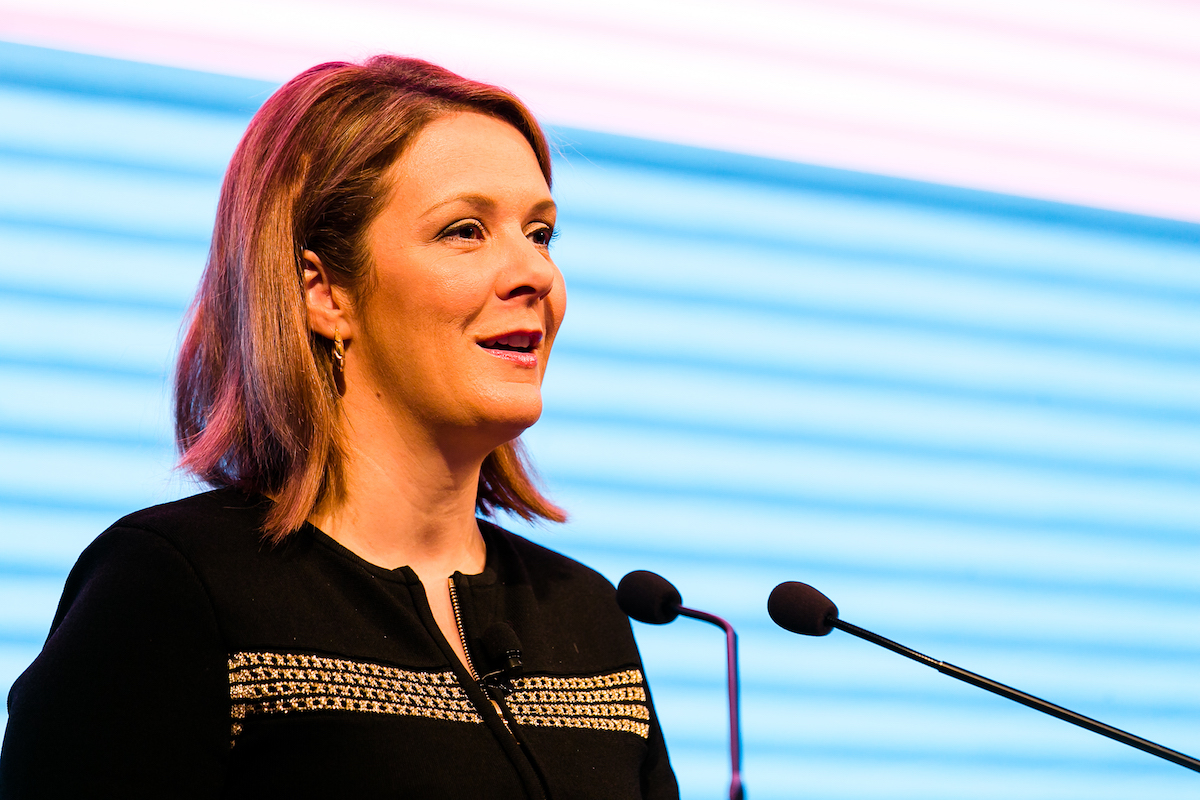In Australia, one in five new mothers and one in 10 new fathers suffer from perinatal depression and anxiety (PNDA). It is an illness that can be diagnosed when new and expecting parents experience strong emotions that impact negatively on their ability to function as usual for two weeks or more.
Obstetrician and gynaecologist Dr Vijay Roach highlights the signs to look for if you think someone is suffering from PNDA.
“These include constant worry, thinking that you’re not doing things correctly, difficulty sleeping even when you do have opportunities to sleep, and fretting over small things,” Dr Roach tells The CEO Magazine.
“Also, physical sensations like your heart racing, or feeling short of breath, or feeling overtired or overwhelmed. And negative thoughts – feeling worthless or feeling that you’re not a good mother or father or that your baby would be better off without you.”
Dr Roach adds that “seeing yourself as worthless” is a very common feeling among PNDA sufferers.
Signs and symptoms of PNDA, according to Gidget Foundation Australia, a non-profit organisation that supports the wellbeing of new parents and their families, include:
- Being unable to enjoy activities you used to enjoy prior to becoming pregnant or the baby’s birth;
- Feeling numb and remote from family and friends or alternatively hyperactive;
- Being unable to concentrate, make decisions or get things done;
- Having thoughts of harming yourself or the baby;
- Feeling guilt, shame or repetitive thoughts;
- Feeling grief, loss, anger or feeling trapped or in a dark hole.
Speaking at Gidget Foundation Australia’s launch of its telehealth service ‘Start Talking’ in April, Gidget Foundation ambassador and ABC political reporter Brigid Glanville identified her struggles with post-natal depression, particularly after having her second child. Prior to the event, Brigid had written an article in the Sydney Morning Herald opening up about postnatal depression.

“At home I was barely functioning – you can put on a happy face but everyday you’ll think, ‘When is this day going to end?’” she said at the event. “I remember that feeling of wanting to be alone, yet I was incredibly lonely and I wouldn’t really open up. I didn’t really care about anyone else and I just hated thinking of anything beyond caring for my new born – but I felt that I couldn’t even do that.
“My only action was to observe myself and judge myself continually and it was just this perpetual cycle of tears – it was horrendous.
“I vividly remember crying, sitting at the kitchen table with this kitchen knife, cutting my arms and thinking, ‘If I just cut deeply enough, the blood will come out and I know I’ll feel relaxed’.”
Following that incident, Brigid decided to seek help. “I was no longer just sad, I was sick,” she said.
How to identify someone with PNDA in the workplace
Australia’s Minister for Mental Health and Minister for Women Tanya Davies, who was also at the Gidget Foundation event, detailed her anxieties about trying to have a second child (and having miscarriages) soon after her first child. She highlighted that for those who consider themselves strong, it is even harder to admit when something is wrong.
“I was terribly traumatised on the inside but externally you wouldn’t know anything was wrong,” she told the audience at the ‘Start Talking’ launch. “And that’s the problem. The façade, the mask, the act. I know in my case there were many times that I put on a mask for myself, telling myself, ‘There’s nothing wrong, it’s okay we’ll get there, keep going powering on, you’re not going to let this stop you’.”
Tanya emphasised the importance of talking about the challenges with pregnancy and new parenthood. “We need to get real and honest and transparent with each other,” she said. “We have to say to our mums – whatever age or background, whether they’re highly educated or teenage mums – that it’s okay to not be perfect.”
When it comes to the workplace, Dr Roach notes ways work colleagues can identify whether an expecting or new parent could be suffering from PNDA. “Someone might be underperforming or coming in late to work or, in fact, over working; trying to overcompensate,” he says.
“They are not going home, not being with their baby, not spending time with their family. Or it might manifest in another way, it might manifest through anger or someone overreacting at work or not behaving in a way you are used to them behaving.
“Our first reaction would be irritation with that person but instead maybe we should take them aside and say, ‘You’re actually not yourself, is there anything that we can talk about?’”
Dr Vijay adds that it’s important to recognise that, as a colleague, you don’t have the skills to be a psychologist but you can be aware of the services that are available to help those suffering from PNDA.
Where to direct a PNDA sufferer to seek help:
- GP
- Obstetrician
- Child and family health nurse
- Midwife
- Psychologist
- Psychiatrist
- Social worker
- Specialist support group
Dr Vijay told attendees at the Gidget Foundation event that to change the paradigm around mental health and pregnant women and parents, “we need to look inwards not outwards”.
“Each of us needs to understand that we need to know our own mental health before we start helping others. If we understand our own feelings, our own anxieties, if we look inwards rather than outwards, then we will develop empathy, not sympathy.
“We will remain connected with the cause PNDA, we’ll change the conversation and we’ll share a common space.”






Excellent article Sharon. Let’s hope this helps some out there and hets people to start talking. #starttalking, #perinatalanxiety, #feelbetter,#lightattheendofthetunnel ♥️